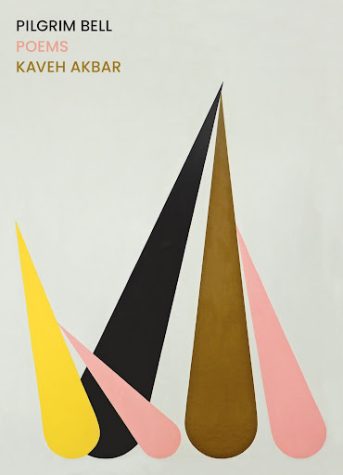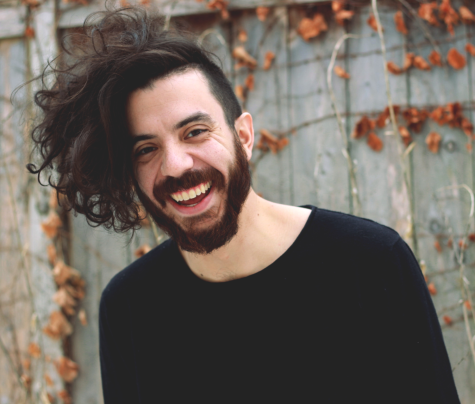Kaveh Akbar hosts poetry reading at CLC
May 14, 2022
The author/poet Kaveh Akbar joined the CLC community for a reading from his new book, Pilgrim Bell, on Wednesday, April 13, 2022. I was so excited about this event that I purchased the book. College is a time for expanding your horizons and understanding other perspectives, so I am all in! I have never attended a poetry reading by an acclaimed and award-winning individual, so this was an eye-opening experience.

The pre-presentation began with a few slides from different news outlets praising his works. The New Yorker described Akbar’s practice of taking language apart and harnessing the empty space, making even the most familiar words seem eerie and unexpected. That alone had my attention! This was an enjoyable experience and a fun way of celebrating National Poetry Month.
Esley Stahl gave a brilliant introduction and mentioned an Instagram page of note, encouraging all to check it out if we had not already.
Kaveh was born in Tehran, Iran. He holds an MFA from Butler University and a Ph.D. in creative writing from Florida State University. He is currently an Assistant Professor of English at Purdue University. He is described as a poet and a scholar.
He read five poems, four of his own and one by Enheduanna, called The Hymn to Inanna, which Jane Hirshfield translated. Enheduanna was the world’s first known author (circa 2300 BCE) from Sumeria. She was a poet and wrote hymns and liturgy. Her works were excavated in the 1920s. I found it interesting that Enheduanna had inscribed her name on the tablets of each of her poems and her collection of 42 hymns, marking the first known example of authorship in the world. How fascinating.
Kaveh’s reading style was very eloquent, keeping the audience’s full attention and coloring it vividly by using intentional pauses, inflection changes, and flowing articulation. The other four pieces he read were VINES; I WOULDN’T EVEN KNOW WHAT TO DO WITH A THIRD CHANCE; MY EMPIRE; and FORFEITING MY MYSTIQUE. Each piece was as captivating as the last. Each made you think in an unusual way. By unusual, I mean that through a few words, spoken and emphasized by the writer, Kaveh was able to sprinkle thoughts and ideas into the listener’s brain, so they are able to experience what is happening through an enriched perspective that is not their own.

Kaveh was very gracious, and one of the things I found interesting was that during quarantine, he spent the bulk of his time reading novels (two a week!) and so much so that he then authored a novel. He said he immigrated to the US when he was almost three and began drafting poems at four and five years old. He has always loved language because he feels it has plasticity, playfulness, and legoiness. (What a great word!) He loves playing with language. His mother would bring home random books that had just been returned but were not yet shelved because she had limited time at the library, and those were his playthings for the week. He accumulated an expansive vocabulary very early and mentioned that his reading and writing skills were developed concurrently.
Kaveh was asked about the common affliction known as writer’s block and what suggestions he could offer for new or veteran writers to move beyond the block. He said that many writers struggle with it because they feel their writing is not good enough, they don’t have any ideas, and they are “in their head” about it. He suggested his method. He is constantly writing things down in a notebook or an app on his phone – phrases, lines, words, sights, observations, situations, how someone moves, etc. He then connects those notes to other pieces of language and plays with it and sees what comes up. He added that writing should be accrued and not imposed. Starting to write things down and take notes is something anyone can begin anytime. I thought that was a substantial suggestion, and I know a few people who already do this.
I enjoyed the reading and the Q&A afterward. I highly encourage everyone to attend these types of enlightening events at CLC. I am not a poetry person but through the courses, I am taking and the opportunities at CLC, I am enjoying learning and expanding my own perspective in ways I had not imagined.






